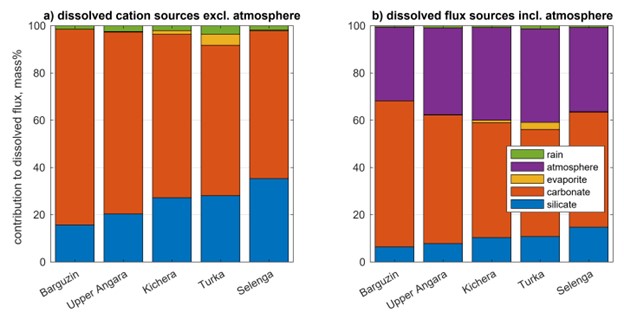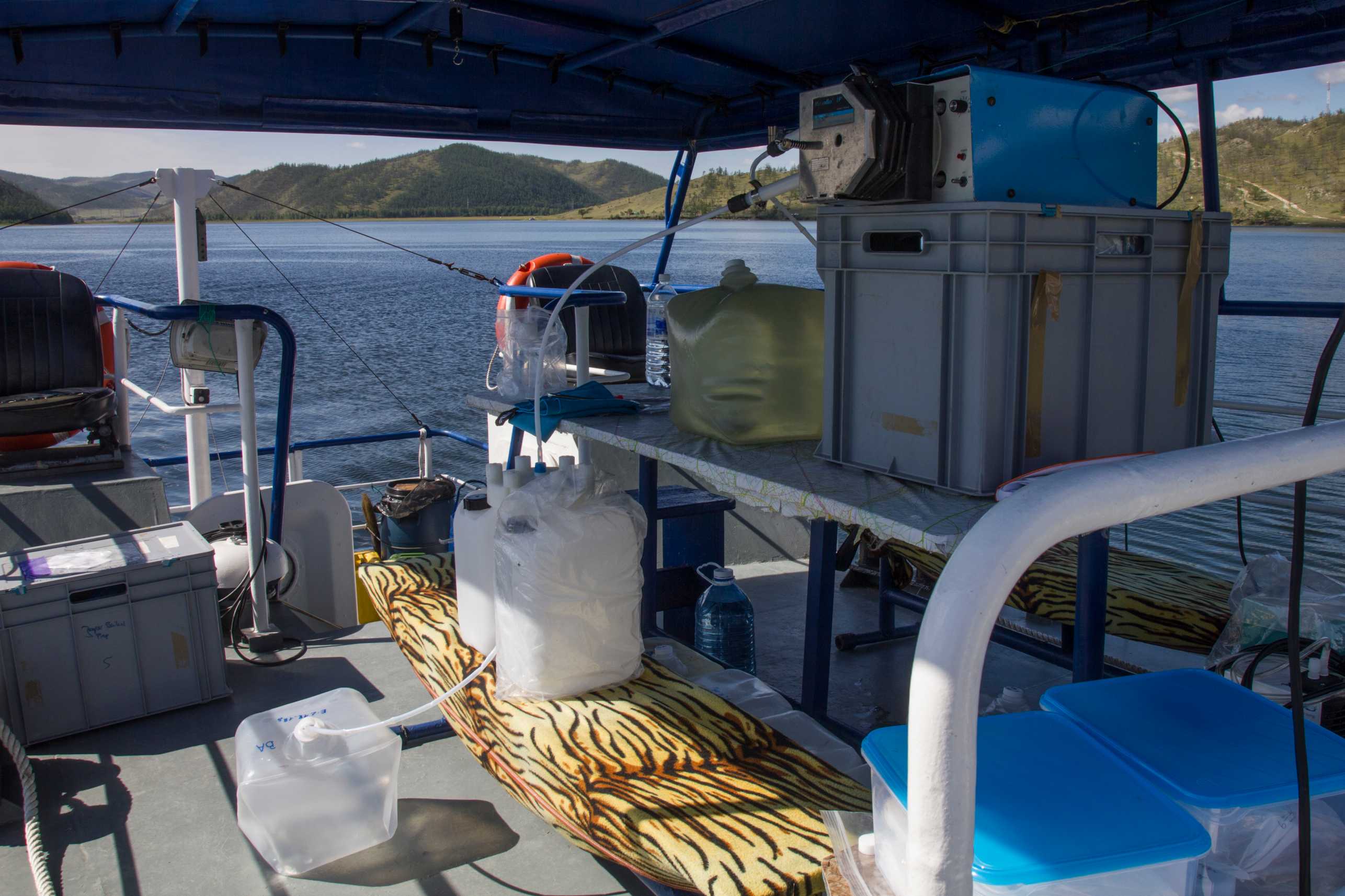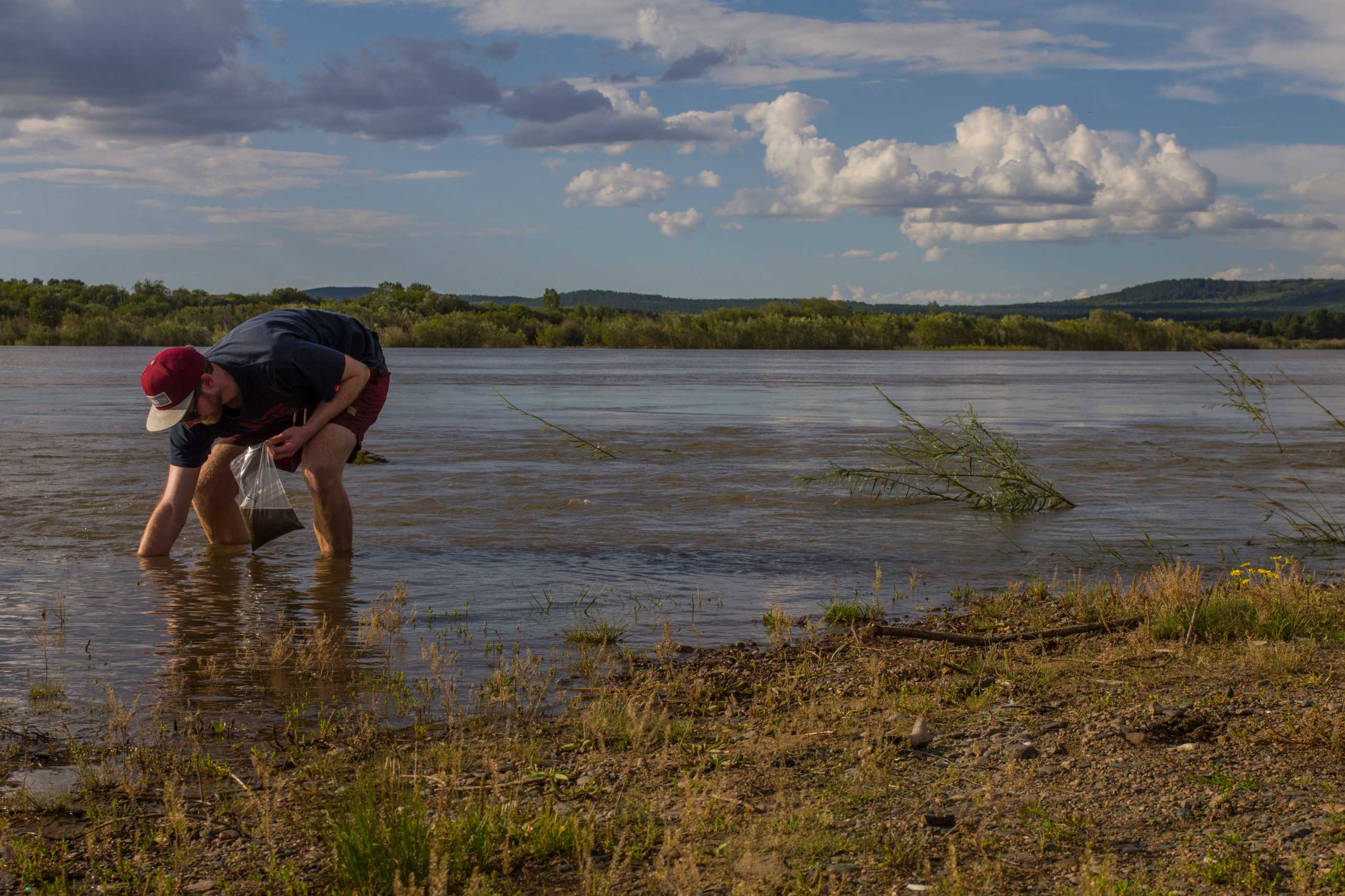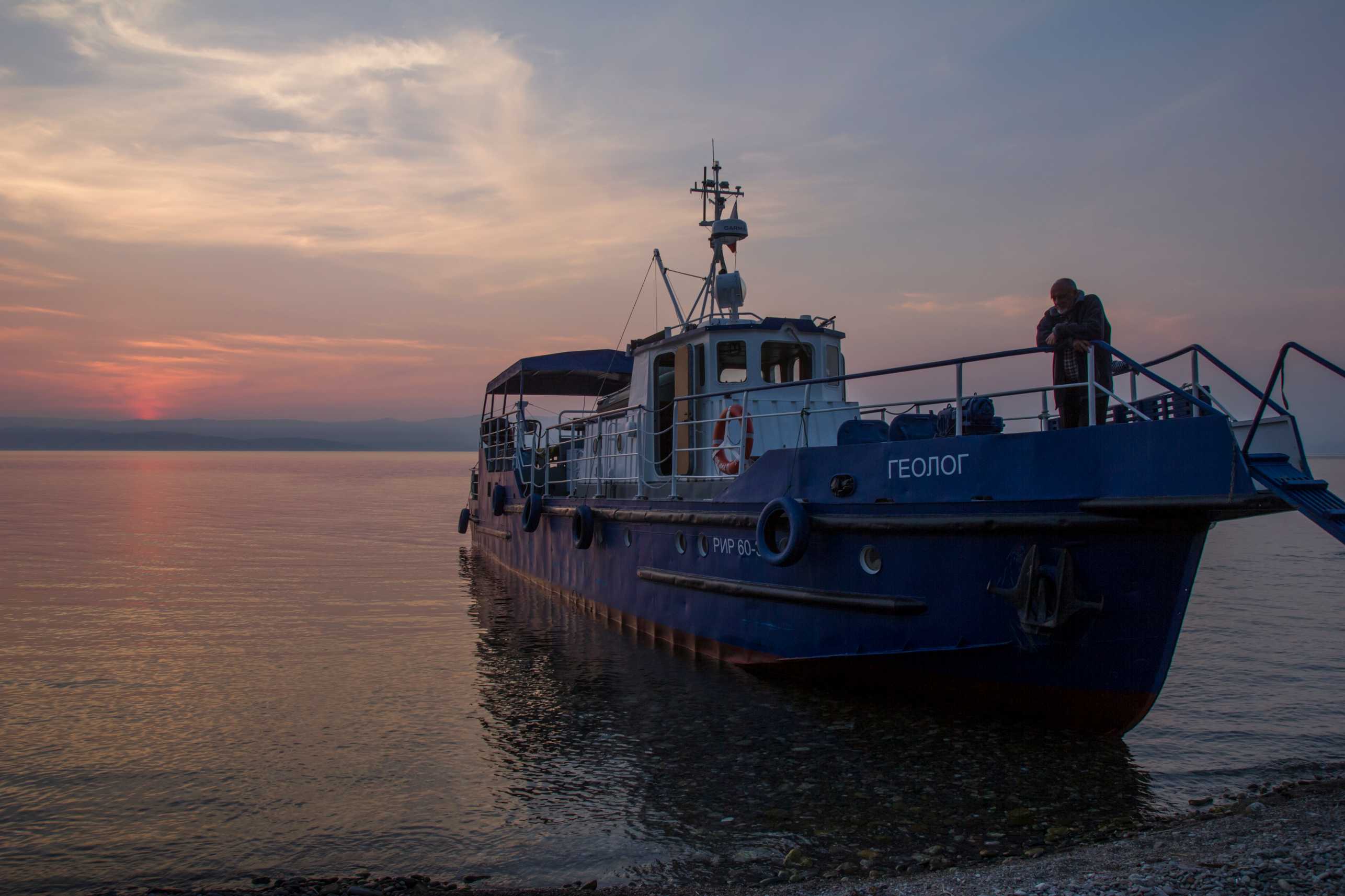Weathering records from lakes
Lakes have several advantages over oceans for assessing modern and past weathering processes. For example, due to their smaller spatial extent, the controlling processes are easier to identify. Additionally, the residence times of conservative elements are shorter so that isotopic responses to secular climate variation are not temporally smoothed.
Exploiting these advantages, our group studies lakes to better understand how weathering processes depend on climate – both today and in the past. Because of its extensive sedimentary record and silicate-rock-dominated geology, we are primarily focusing on Lake Baikal, where we have conducted a detailed study on modern weathering processes and are working on extending our understanding of these processes to the last deglaciation.
Partitioning of chemical weathering fluxes into different source endmembers. Although less important than carbonate weathering, silicate derived weathering fluxes at Lake Baikal are representative of global processes.

Team members
Student projects
- Suhrhoff, T.J. (2023). Modern and past chemical weathering at Lake Baikal and its implications for marine reconstructions of the global weathering-climate feedback. Doctoral thesis, ETH Zurich.



